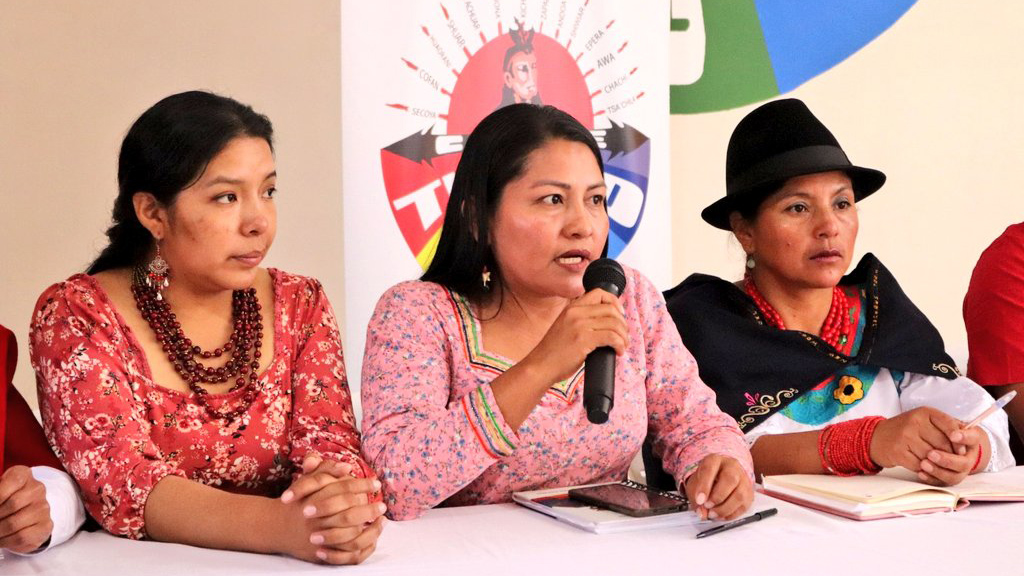On Monday, February 6, after suffering a major defeat in Sunday’s local elections as well as a a referendum on eight constitutional reforms, conservative Ecuadorian President Guillermo Lasso called on the civil society organizations and opposition political parties to engage in dialogue and reach a “great national agreement” to address the problems facing the country.
Following Lasso’s call, on Tuesday and Wednesday, leaders of several social movements and left-wing political parties rejected his proposal, criticizing his ability to govern and calling for early elections.
Former President Rafael Correa and leader of the Citizen Revolution Movement (RC), which swept prefectures and mayoralties in major provinces and cities in Sunday’s elections, shared a video message on his Twitter account on Wednesday, rejecting Lasso’s call as “untrustworthy”, “insincere” and “full of cynicism.”
Correa added that Lasso needs to understand “for the good of the country, for his own good, that he is a part of the problem, not the solution,” and claimed that Lasso “has been the author and at the beginning an accomplice of [Correa’s successor and Lasso’s predecessor] Lenín Moreno for the national tragedy that we are experiencing.”
On Monday night, Correa suggested that Lasso should cut short his term and call early elections. “A great national agreement comes via bringing forward the elections. We must overcome the simplicity that democracy means waiting for elections every four years. Lasso is a great fraud, an accomplice of the destruction of the homeland, and constitutionally he must be removed,” tweeted Correa.
Similarly, the parliamentary bench of the Democratic Left (ID) party issued a statement, indicating that it would not join the dialogue called by the president as long as there are no concrete actions for the country’s priorities.
“The National Government must assume the consequences of its improvisation and bad decisions that keep the country in a serious economic and social crisis, especially regarding health, security, employment and education, which have not found a solution in previously proposed dialogues, because they have never materialized in actions that benefit Ecuadorians. As long as there are no concrete actions in favor of Ecuadorians, we will not yield to strategies that seek to ignore the discontented clamor of the people evidenced at the polls,” said the ID party.
Likewise, Indigenous leader Leonidas Iza Salazar and the president of the Confederation of Indigenous Nationalities of Ecuador (CONAIE), one of the main organizers of the June 2022 national strike against the Lasso government, stated that the confederation would be part of the dialogue.
“Mr. Lasso, the results of the popular consultation confirm that the people will never forgive the inability to govern, nor the fact that you have called those who think differently drug-traffickers. Now that you have lost, you want to listen? CONAIE will not be part of any false ‘national agreement,’” tweeted Salazar.
In addition to CONAIE, the leaders of the Council of Indigenous Evangelical Peoples and Organizations of Ecuador (FEINE), among other social organizations, in a press conference on Wednesday, reiterated their rejection of the Lasso government and its anti-people neoliberal policies.
The center-right Social Christian Party (PSC) also refused to participate in the agreement. “We will not be part of a ‘National Agreement’ called by the government, because what the President of the Republic proposes and does always ends up affecting the interests of the Ecuadorian people and especially of the poorest and furthermore, because he has given permanent signs that his word and that of his government cannot be believed,” said the party in a statement.
Following the defeat in the referendum promoted by Lasso, political analysts predict a rocky road ahead for his government. Since assuming office in May 2021, the Lasso administration has faced repeated disagreements with the opposition-dominated unicameral Congress, in addition to strikes and protests, while struggling to contain a rise in drug-related violence in the country’s prisons and cities. In June 2022, Lasso narrowly survived an impeachment vote after lawmakers criticized his violent response to social protests over high food and fuel prices.





